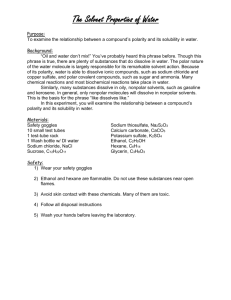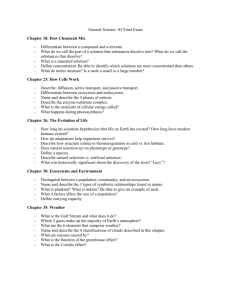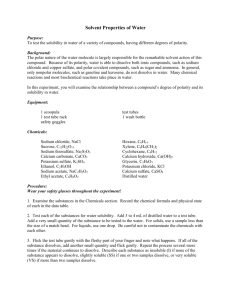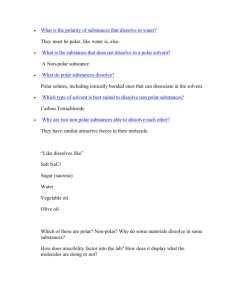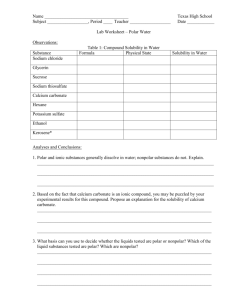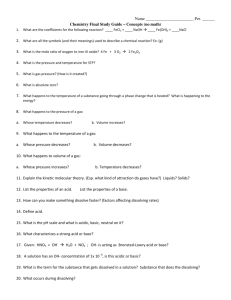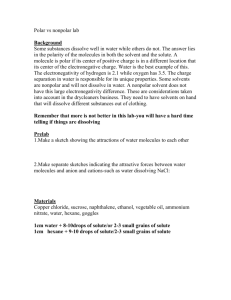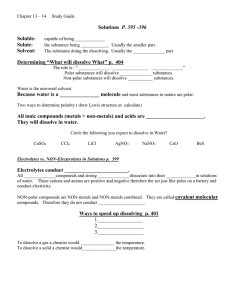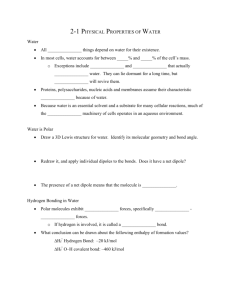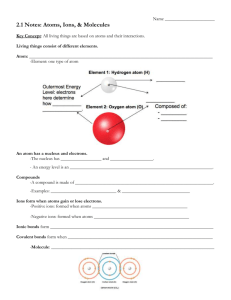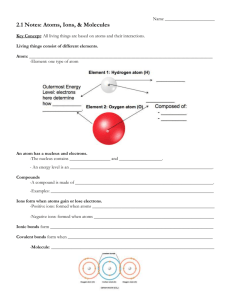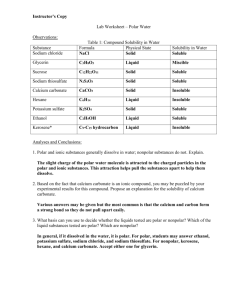Polar Water
advertisement
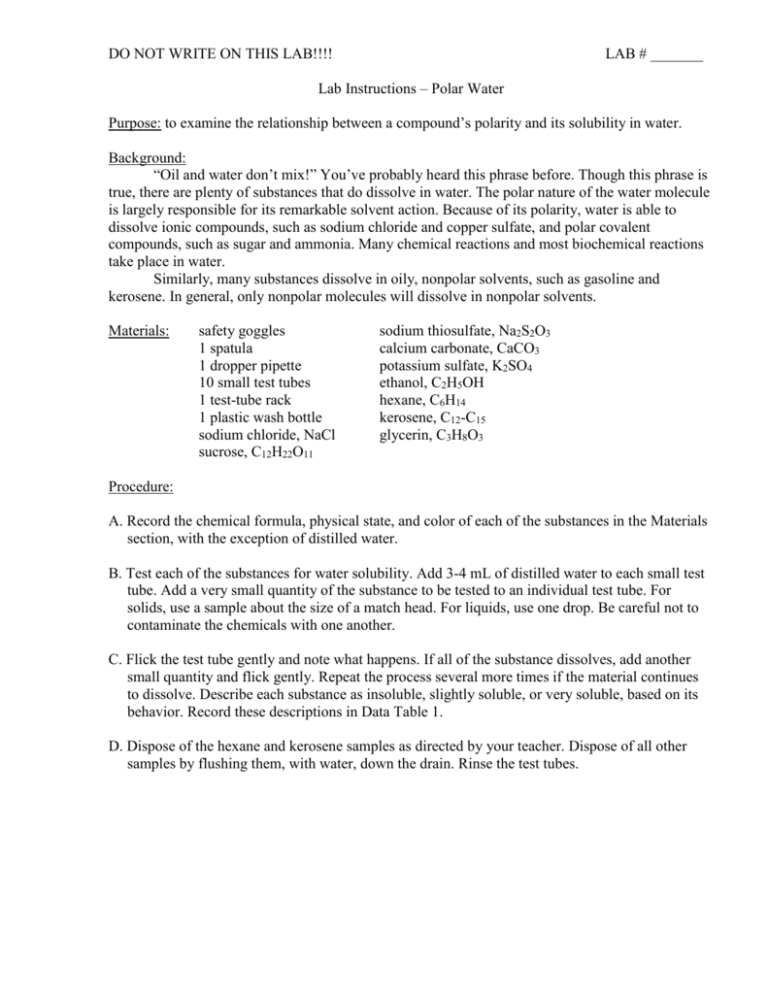
DO NOT WRITE ON THIS LAB!!!! LAB # _______ Lab Instructions – Polar Water Purpose: to examine the relationship between a compound’s polarity and its solubility in water. Background: “Oil and water don’t mix!” You’ve probably heard this phrase before. Though this phrase is true, there are plenty of substances that do dissolve in water. The polar nature of the water molecule is largely responsible for its remarkable solvent action. Because of its polarity, water is able to dissolve ionic compounds, such as sodium chloride and copper sulfate, and polar covalent compounds, such as sugar and ammonia. Many chemical reactions and most biochemical reactions take place in water. Similarly, many substances dissolve in oily, nonpolar solvents, such as gasoline and kerosene. In general, only nonpolar molecules will dissolve in nonpolar solvents. Materials: safety goggles 1 spatula 1 dropper pipette 10 small test tubes 1 test-tube rack 1 plastic wash bottle sodium chloride, NaCl sucrose, C12H22O11 sodium thiosulfate, Na2S2O3 calcium carbonate, CaCO3 potassium sulfate, K2SO4 ethanol, C2H5OH hexane, C6H14 kerosene, C12-C15 glycerin, C3H8O3 Procedure: A. Record the chemical formula, physical state, and color of each of the substances in the Materials section, with the exception of distilled water. B. Test each of the substances for water solubility. Add 3-4 mL of distilled water to each small test tube. Add a very small quantity of the substance to be tested to an individual test tube. For solids, use a sample about the size of a match head. For liquids, use one drop. Be careful not to contaminate the chemicals with one another. C. Flick the test tube gently and note what happens. If all of the substance dissolves, add another small quantity and flick gently. Repeat the process several more times if the material continues to dissolve. Describe each substance as insoluble, slightly soluble, or very soluble, based on its behavior. Record these descriptions in Data Table 1. D. Dispose of the hexane and kerosene samples as directed by your teacher. Dispose of all other samples by flushing them, with water, down the drain. Rinse the test tubes.
